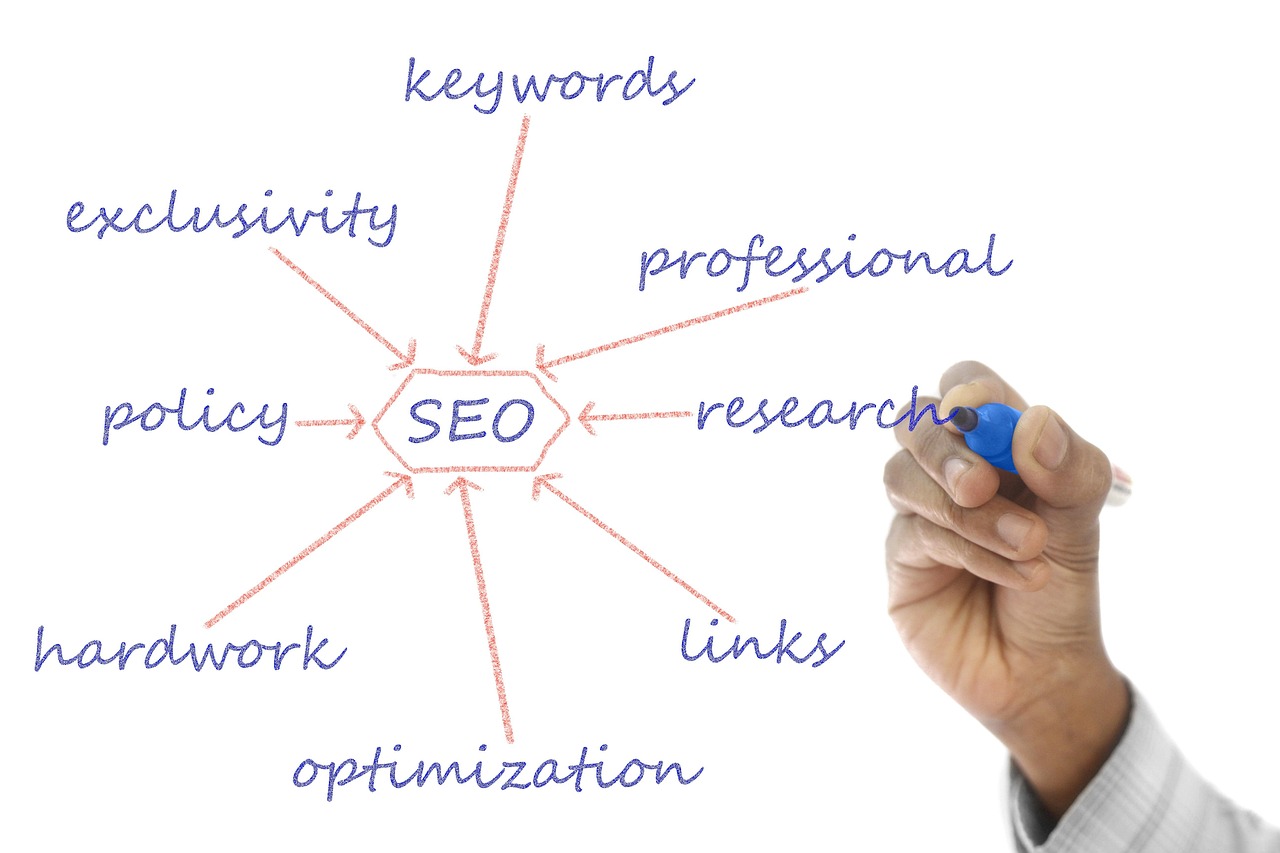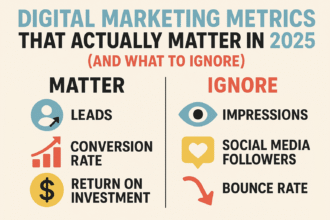SEO in 2025: Strategies to Outrank Competitors in the AI-First Search Era
The world of SEO in 2025 is no longer just about pleasing Google’s algorithm. Search has shifted into an AI-first era, dominated by intelligent assistants like ChatGPT, Perplexity, Gemini, and Microsoft Copilot. These AI-driven engines summarize, analyze, and filter web content before presenting it to users. As a result, businesses must rethink how they approach visibility, ranking, and authority online. The stakes are high: if your brand is not optimized for this new reality, you risk becoming invisible.
In this guide, we’ll break down the latest SEO strategies to outrank competitors in 2025, blending traditional practices with AI-era innovations. You’ll learn how to adapt your content, technical SEO, and authority signals to stay competitive in an evolving search landscape.
1. Understanding the AI-First Search Era
From Keywords to Conversations
In the past, SEO centered around keywords. Today, AI-driven search focuses on intent and context. Large Language Models (LLMs) analyze user questions in natural language and provide answers based on relevance, authority, and trust. Optimizing for conversational queries is now more important than optimizing for individual keywords.
AI as the Search Middleman
AI systems no longer show a list of “10 blue links.” Instead, they summarize information. Your goal is to become the source that AI engines trust enough to quote or summarize. This requires content clarity, structured data, and authority building.
Case Study: Perplexity AI Adoption
In 2024, Perplexity AI saw exponential adoption, surpassing 10 million daily active users. Businesses that optimized their FAQ-style and authoritative content saw their content cited within Perplexity’s answers. This visibility translated into a 32% increase in referral traffic for early adopters.
2. Core SEO Trends in 2025
- AI-Centric Optimization: Content designed for LLMs, not just Google crawlers.
- Experience Signals: E-E-A-T (Experience, Expertise, Authoritativeness, Trustworthiness) continues to dominate ranking signals.
- Multimodal SEO: Optimizing not only text, but also voice, images, and video for AI engines.
- First-Party Data Integration: With privacy regulations rising, websites that provide reliable, transparent data will gain AI trust.
- Semantic Richness: Entities, structured data, and ontologies are essential for visibility.
3. How to Outrank Competitors with AI-Driven SEO
Optimize for AI Citations
AI assistants need authoritative content to cite. To maximize your chances:
- Create well-structured, long-form content with clear headings and subheadings.
- Use FAQ-style sections to target conversational queries.
- Add structured data (Schema.org) for definitions, statistics, and product information.
Leverage Data and Studies
Original research and case studies are the most cited sources in AI search. For instance, a SaaS company that published a 2025 “State of SaaS” report received over 50 citations in AI tools, leading to increased backlinks and authority.
Enhance E-E-A-T Signals
Google’s Search Quality Evaluator Guidelines (2024 update) placed even greater emphasis on E-E-A-T. Showcasing author bios, credentials, and transparent sourcing makes your content more trustworthy to both AI and human readers.
Case Study: Health Content in AI Search
In 2025, Healthline became one of the most frequently cited sources in AI-generated health queries. Why? They consistently used expert contributors (doctors, nutritionists), fact-checked claims, and provided structured Q&A formats.
4. Technical SEO in 2025
Page Experience Metrics
Core Web Vitals still matter. Fast-loading, mobile-first websites reduce bounce rates and improve both human and AI engagement. AI assistants factor user experience signals into whether they cite or recommend a source.
Schema and Structured Data
Structured data is the “language” AI understands. Sites that mark up FAQs, products, recipes, and articles using Schema.org increase their chance of being cited in AI summaries. JSON-LD is now standard practice.
Voice and Multimodal SEO
By 2025, 70% of all digital assistants use multimodal input. This means your content must be optimized for voice queries, images, and video transcripts. For instance, using descriptive alt text and structured captions boosts AI discoverability.
5. Content Strategies That Work in 2025
1. Evergreen + Trend Hybrid
Combine evergreen content (guides, definitions) with trending updates (2025 statistics, new AI tools). This approach ensures your content is both stable and fresh.
2. Cluster and Topical Authority
Create topic clusters where one “pillar article” links to multiple detailed subtopics. AI systems prefer structured knowledge ecosystems, not isolated posts.
3. Fact-Checking and Sources
AI rewards accuracy. Always cite external authority references, such as Statista, Pew Research, and academic studies. Misinformation lowers your chance of being cited.
4. Case Studies and Examples
Adding real-world examples makes your content quotable. For example, a digital marketing agency that shared its campaign results for TikTok ads (CTR, ROI, engagement rates) saw its case study quoted in AI-generated answers about social media ROI.
6. Monetization and AdSense Readiness
Optimizing for AI does not mean neglecting AdSense requirements. To stay compliant:
- Avoid disallowed niches (gambling, adult, drugs, violence).
- Keep a neutral, professional tone—educational, not sensational.
- Ensure user-first readability: short paragraphs, lists, and visual aids.
7. The Future of Link Building in the AI-First Era
Traditional backlink building is evolving. In 2025:
- AI Citations replace backlinks: AI tools reference your content directly.
- Brand Mentions: Even unlinked brand mentions now factor into authority.
- Collaborative Research: Partnering with universities or industry groups leads to natural citations in AI summaries.
8. Measuring SEO Success in 2025
KPIs go beyond rankings. Modern metrics include:
- AI citation frequency
- Impressions within AI-generated answers
- User engagement from AI-driven referrals
- Brand visibility in multimodal queries
FAQ Section
1. What is AI-first SEO?
AI-first SEO is the practice of optimizing your content not just for search engines like Google, but also for AI-driven platforms (ChatGPT, Perplexity, Gemini). It focuses on conversational queries, structured data, and authoritative sources to increase the likelihood of being cited by AI systems.
2. How do I get my content cited by AI tools?
Focus on structured, well-sourced, and authoritative content. Use schema markup, publish original research or case studies, and include FAQ sections that match conversational queries. AI engines prefer quoting clear, trustworthy, and expert content.
3. Does keyword research still matter in 2025?
Yes, but with a shift. Instead of focusing only on single keywords, you must optimize for search intent and semantic variations. AI engines prioritize context-rich, user-focused content over keyword density.
4. What technical SEO factors are most important now?
Core Web Vitals (speed, responsiveness), structured data, and mobile-first design remain crucial. In addition, multimodal optimization—ensuring your text, images, and videos are discoverable by AI—has become essential.
5. How can businesses monetize AI-first SEO?
By ranking in AI-driven answers, businesses can capture highly qualified traffic. Monetization comes through AdSense-approved content, lead generation, and increased brand trust. The key is balancing SEO best practices with user-first value creation.
SEO in 2025 is not about chasing algorithms—it’s about becoming the trusted voice in an AI-dominated search world. By focusing on conversational optimization, structured data, E-E-A-T, and case-study-driven authority, you can outrank competitors and secure visibility in AI-first platforms. The businesses that adapt early will not only survive but thrive in this new search era.
Call to Action: Start reworking your SEO strategy today. Audit your site for AI-first readiness, build authority with original research, and structure your content for the future of search.








